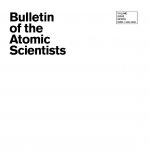Fear factor: The unseen perils of the Ebola outbreak
By James M. Shultz, Benjamin M. Althouse, Florence Baingana, Janice L. Cooper, Maria Espinola, Michael Greene, Zelde Espinel, Clyde B. McCoy, Laurie Mazurik, Andreas Rechkemmer | September 2, 2016
As illustrated powerfully by the 2013–2016 Ebola outbreak in western Africa, infectious diseases create fear and psychological reactions. Frequently, fear transforms into action – or inaction – and manifests as “fear-related behaviors” capable of amplifying the spread of disease, impeding life-saving medical care for Ebola-infected persons and patients with other serious medical conditions, increasing psychological distress and disorder, and exacerbating social problems. And as the case of the US micro-outbreak shows, fear of an infectious-disease threat can spread explosively even when an epidemic has little chance of materializing. Authorities must take these realities into account if they hope to reduce the deadly effects of fear during future outbreaks.
Together, we make the world safer.
The Bulletin elevates expert voices above the noise. But as an independent nonprofit organization, our operations depend on the support of readers like you. Help us continue to deliver quality journalism that holds leaders accountable. Your support of our work at any level is important. In return, we promise our coverage will be understandable, influential, vigilant, solution-oriented, and fair-minded. Together we can make a difference.
Issue: Bulletin of the Atomic Scientists Volume 72 Issue 5
Keywords: Ebola, fear-related behaviors, pandemic
Topics: Uncategorized
















